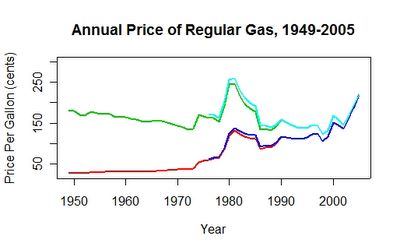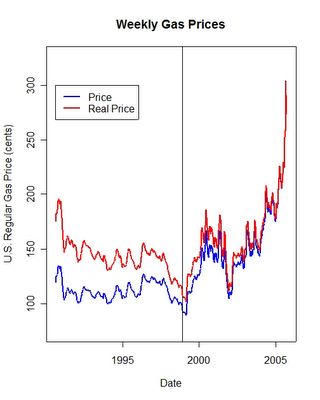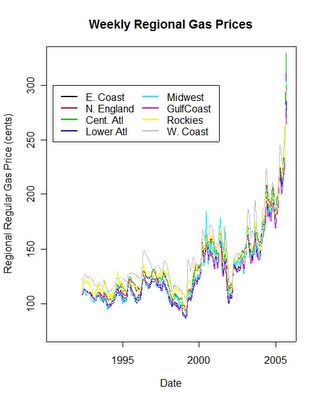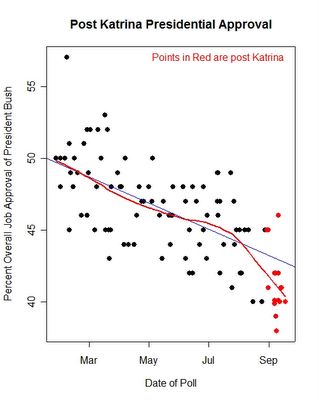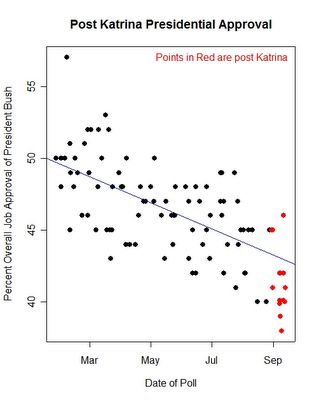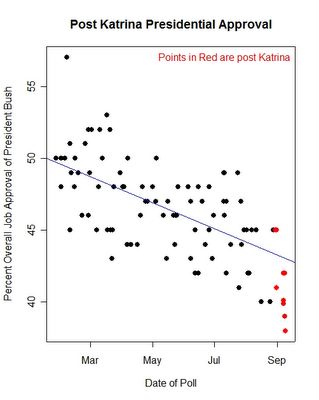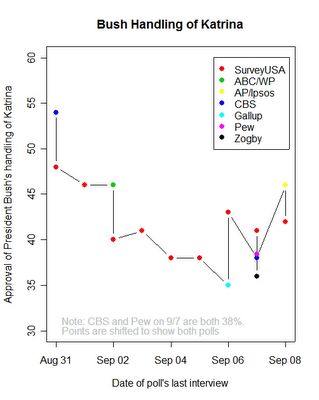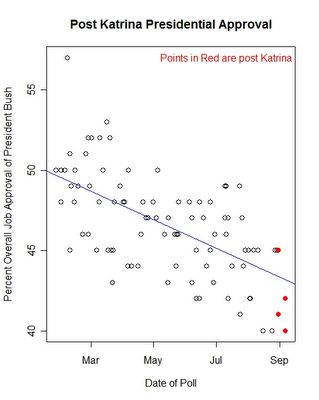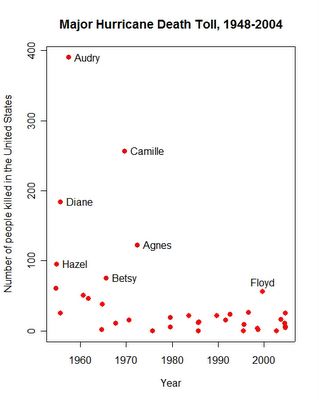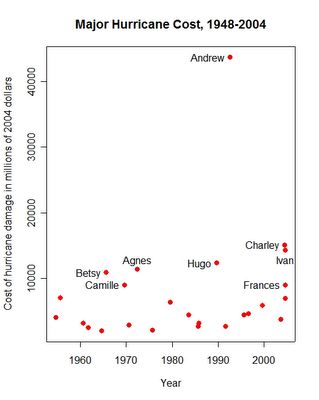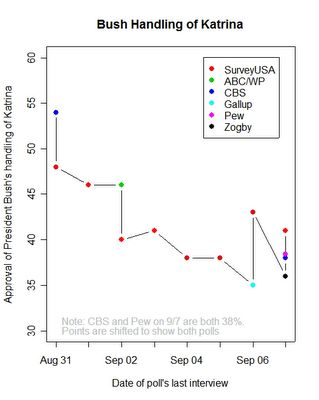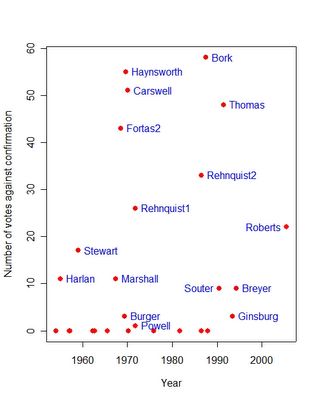
Votes against confirmation of Supreme Court nominees, 1953-2005

Chief Justice Roberts was confirmed today on a 78-22 vote in the Senate. Coincidentally, this vote margin resembles the votes on the man he replaces, the late Chief Justice Rehnquist. Rehnquist was initially confirmed as an Associate Justice by a 68-26 vote in 1971. His elevation to Chief Justice in 1986 drew more opposition, 65-33.
Roberts drew about double the opposition that recent appointees have faced, with the exception of Rehnquist and Justice Thomas, who was confirmed on a 52-48 vote in 1991. (Fortas2 in the figure is a cloture vote in 1968 which failed. President Johnson withdrew the nomination, and Fortas resigned from the Court the next year.)
In the Roberts case, confirmation was assured by the united Republican majority despite pressure from Democratic interest groups which urged "nay" votes from Senators of their party. In the end, 22 of the 44 Democrats voted against the Roberts nomination.
And here is who voted how, among the Dems. (Not sure why the spacing is bad here.)
| Dem-Yes | Dem-No |
| Baucus, Mont. | Akaka, Hawaii |
| Bingaman, N.M. | Bayh, Ind. |
| Byrd, W.Va. | Biden, Del. |
| Carper, Del. | Boxer, Calif. |
| Conrad, N.D. | Cantwell, Wash. |
| Dodd, Conn. | Clinton, N.Y. |
| Dorgan, N.D. | Corzine, N.J. |
| Feingold, Wis. | Dayton, Minn. |
| Johnson, S.D. | Durbin, Ill. |
| Kohl, Wis. | Feinstein, Calif. |
| Landrieu, La. | Harkin, Iowa |
| Leahy, Vt. | Inouye, Hawaii |
| Levin, Mich. | Kennedy, Mass. |
| Lieberman, Conn. | Kerry, Mass. |
| Lincoln, Ark. | Lautenberg, N.J. |
| Murray, Wash. | Mikulski, Md. |
| Nelson, Fla. | Obama, Ill. |
| Nelson, Neb. | Reed, R.I. |
| Pryor, Ark. | Reid, Nev. |
| Rockefeller, W.Va. | Sarbanes, Md. |
| Salazar, Colo. | Schumer, N.Y. |
| Wyden, Ore. | Stabenow, Mich. |

